Introduction
Equine behavioral science plays a vital role in understanding horse temperament and responsiveness. Our research partnership with a leading equine college examined how EquiNectar®, our digestive enzyme supplement, affects horse spookiness and reactivity levels. The primary research question focused on whether EquiNectar® supplementation would increase horses' startle responses to unfamiliar objects or situations.
To evaluate this, we implemented two standardized novel object tests (NOTs), which are proven methods for measuring behavioral responses in horses. The tests challenged horses to interact with two distinct obstacles: a blue tarp and colorful streamers - items specifically chosen to be unfamiliar and potentially challenging for the horses. For comprehensive assessment, we conducted these tests at two intervals: before beginning supplementation and after a four-week supplementation period. Each evaluation was captured on video for detailed analysis.
To complement our behavioral observations, we tracked key physiological indicators, including heart rate monitoring and infrared eye temperature measurements at both testing phases. Our findings revealed valuable information about EquiNectar®'s influence on equine behavior.
Study Protocol
Our pilot study focused on recreational horses averaging 9 years old (±3 years), with average weights of 1,239 pounds (±93 pounds), and body condition scores (BCS) of 4.77 (±0.18) using the Henneke 1-9 scale, representing typical pleasure horses in American barns.
The horses were divided into four treatment groups:
- Group A - forage-based diet (hay/haylage, chopped fiber, and beet pulp) plus EquiNectar®
- Group B - combined forage and grain diet (hay/haylage, chopped fiber, beet pulp, and concentrates) plus EquiNectar®
- Group C - forage diet with heat-deactivated EquiNectar® (LITE)
- Group D - forage and grain diet with heat-deactivated EquiNectar® (LITE)
Testing Methodology
The behavioral assessment utilized two standardized NOTs to measure each horse's response to unfamiliar objects. These scientifically validated tests required horses to navigate past two obstacles: a blue tarp on the ground and suspended colorful streamers.
We conducted evaluations before starting supplementation and again after four weeks of treatment. All tests were video recorded for thorough analysis. We monitored heart rates and eye temperatures during both testing phases.
Findings
Throughout the study period, horses maintained consistent body weights and BCS scores. Heart rate measurements during NOTs showed no significant variations between groups or between pre- and post-supplementation phases.
Groups A and B demonstrated stable eye temperatures across both testing scenarios. Interestingly, control groups (C+D) showed a notable increase in eye temperature during post-supplementation testing.
Summary
The data indicates that EquiNectar® supplementation does not increase horse reactivity or spookiness behaviors.
Clinical Implications
Follow-up observations have revealed an unexpected benefit: EquiNectar®'s digestive support properties appear to have a calming effect on naturally reactive horses. We've documented improvements in disposition and behavior among horses previously exhibiting anxiety, discomfort, or challenging behaviors after incorporating EquiNectar® into their daily regimen.


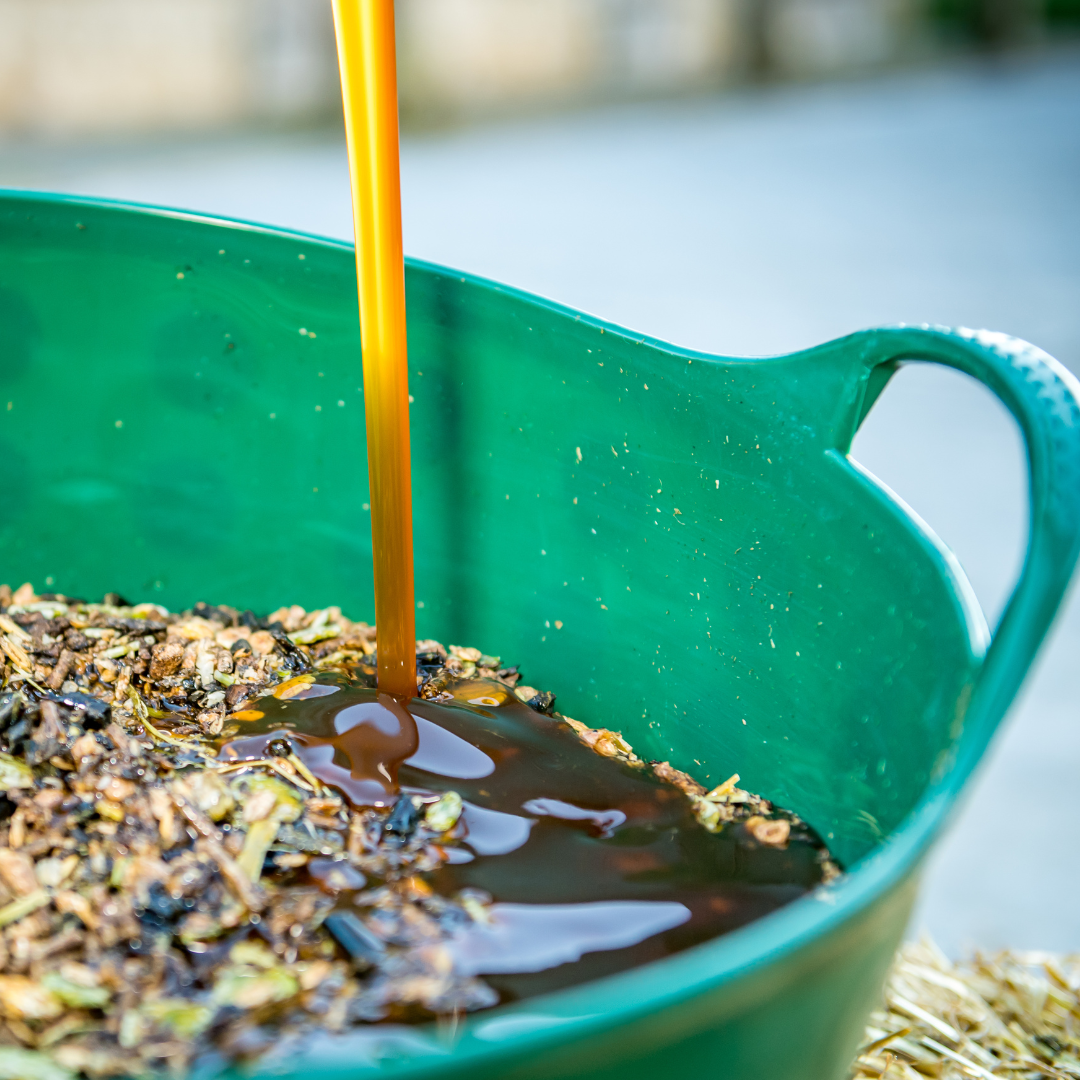
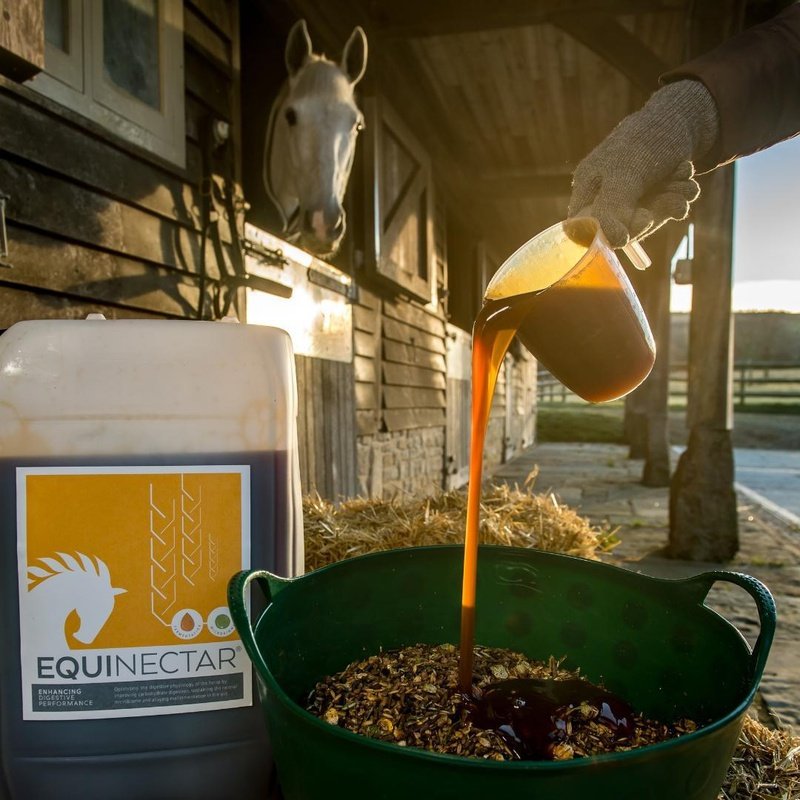
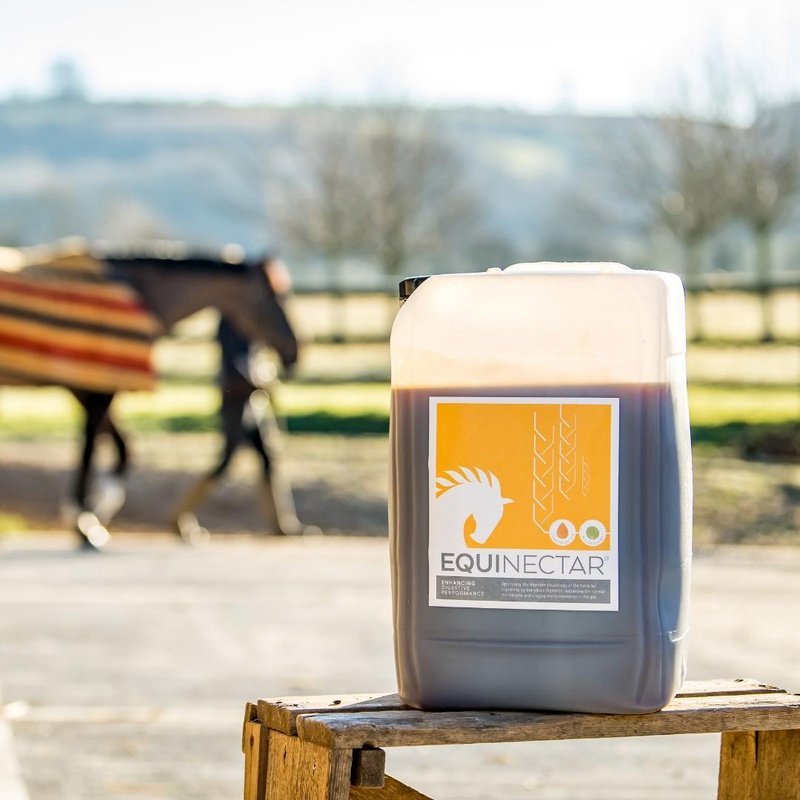
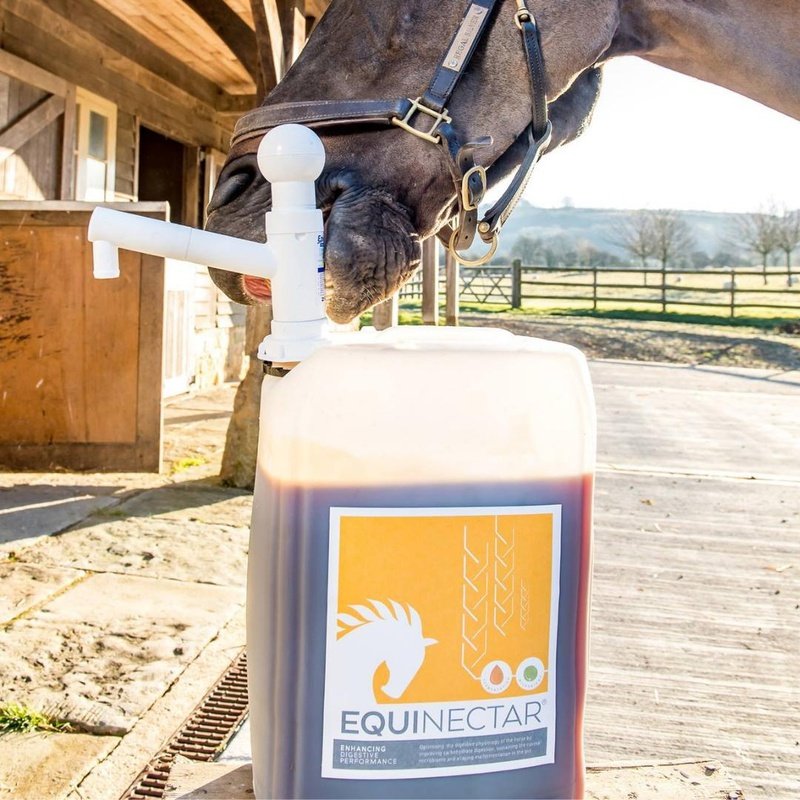

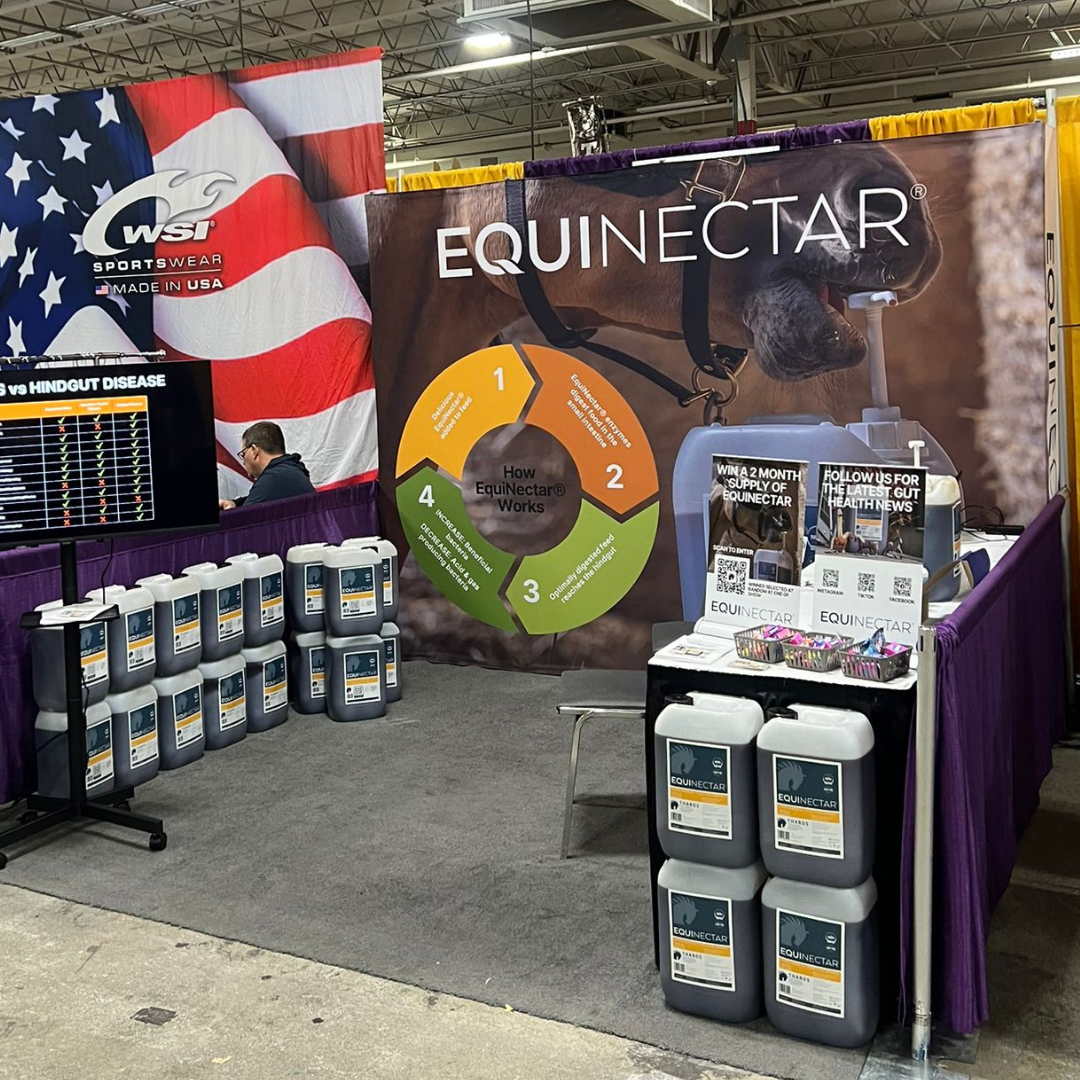

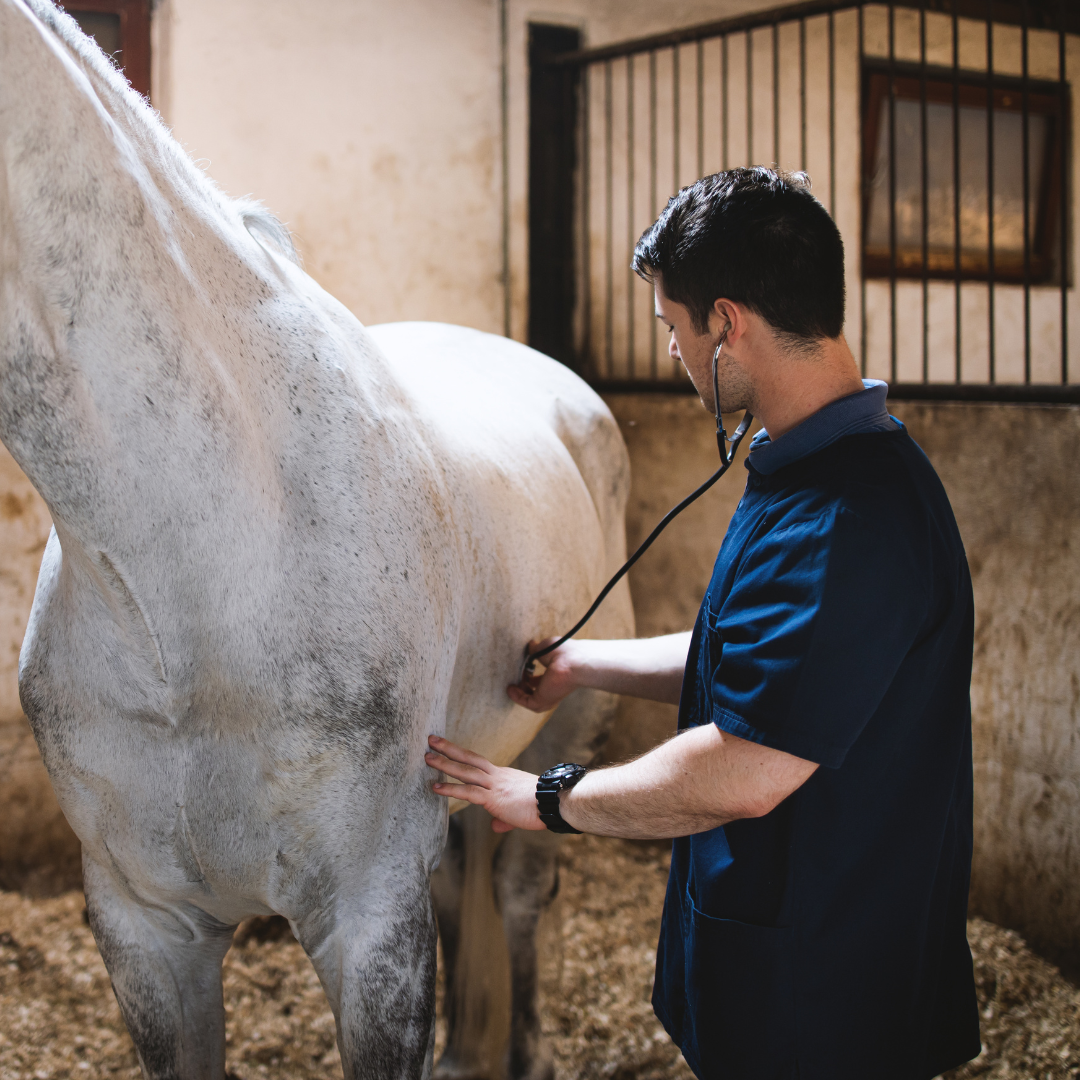
Share: